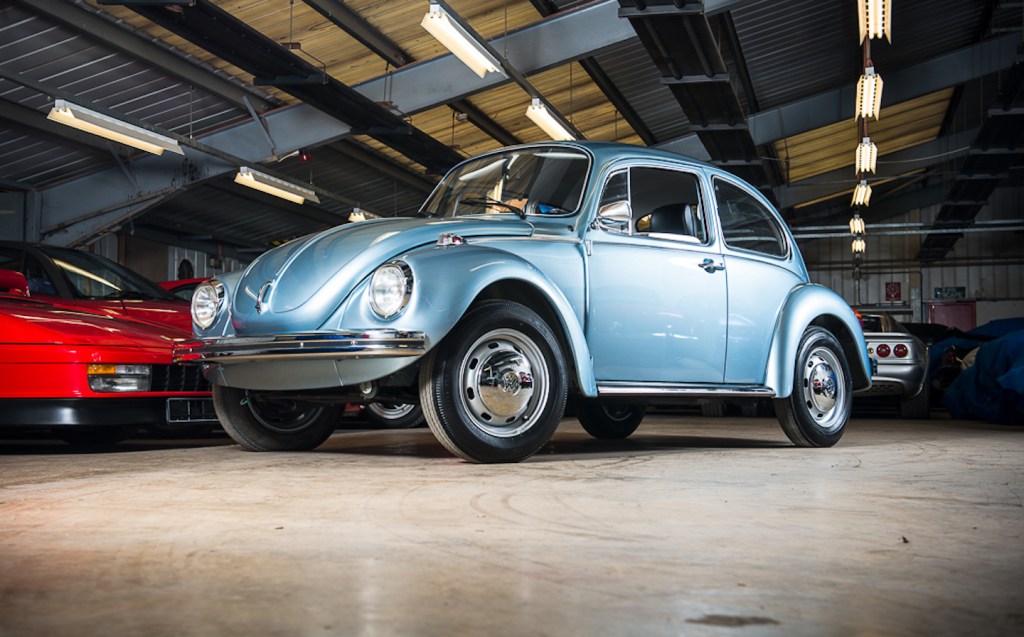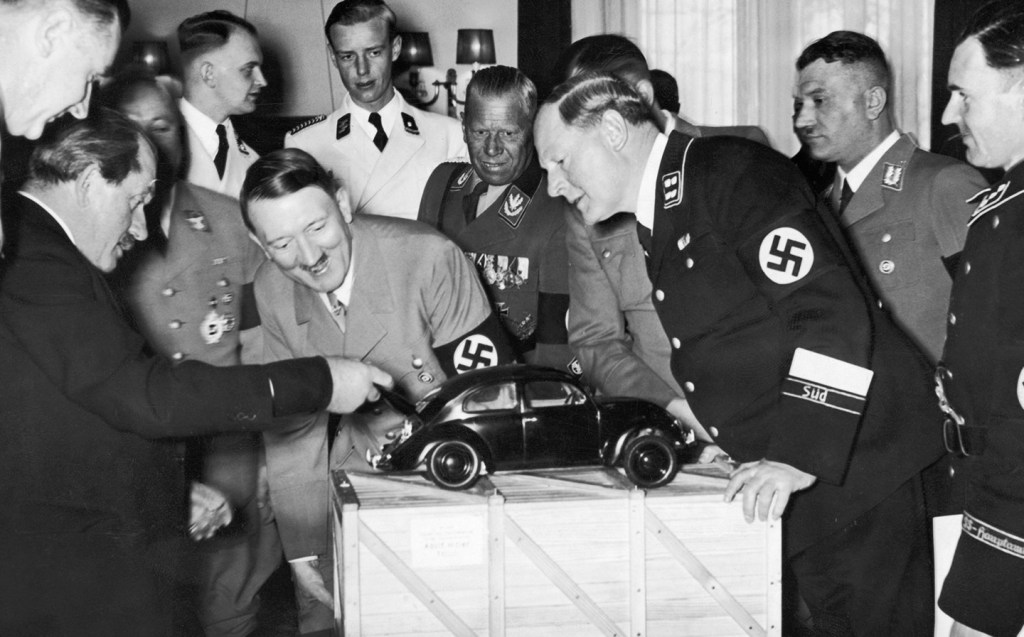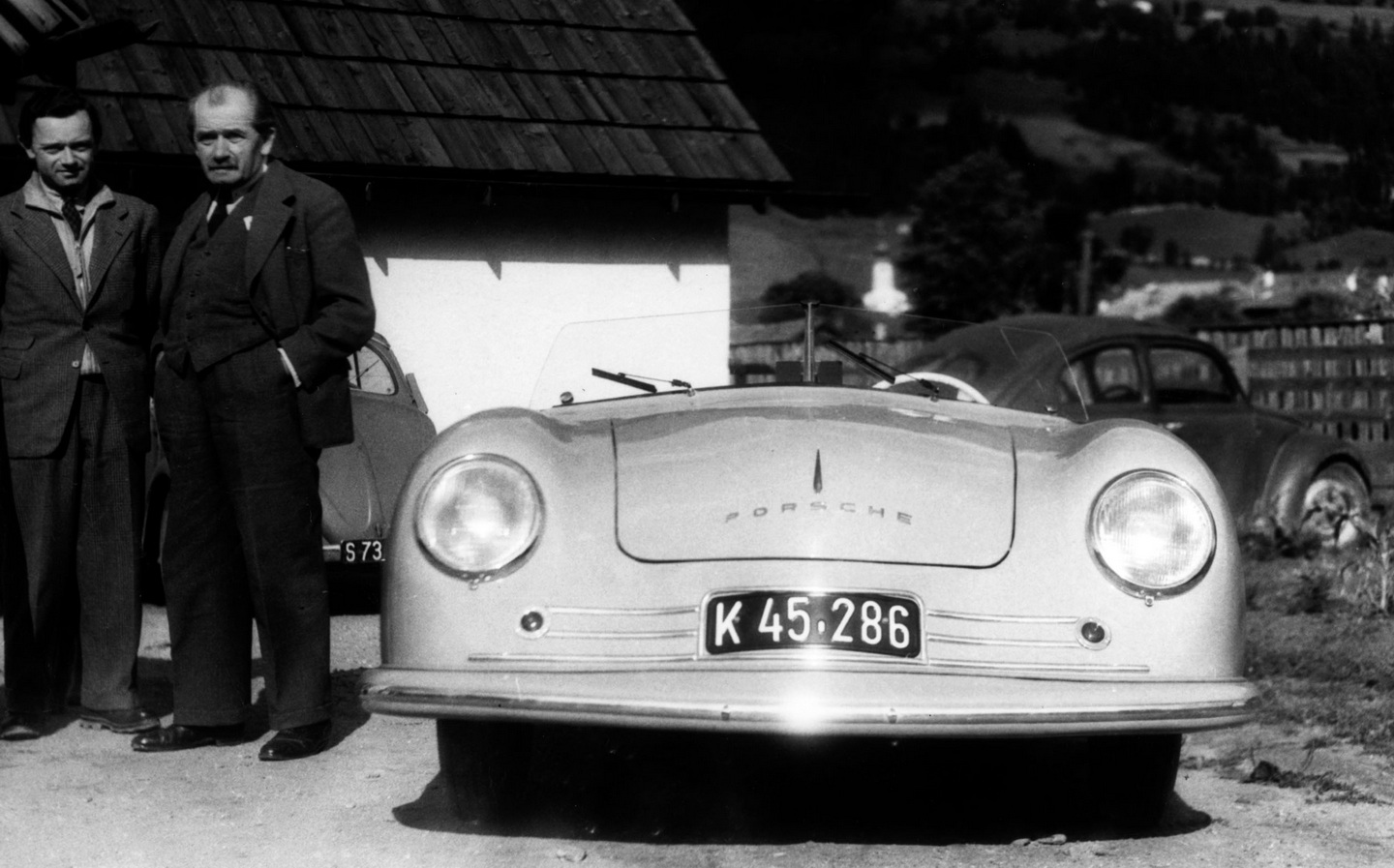Austrian city to rename Porsche Street in light of Ferdinand Porsche’s Nazi past
Porsche debate has been ongoing since 1945
The Austrian city of Linz has announced that it is to rename a street honouring the car-designer Ferdinand Porsche in light of the engineer’s links to the Nazi party in the 1930s and ’40s.
A city spokesperson said last Thursday (December 8) that along with three other streets in Linz (located on the Danube around 115 miles west of Austria’s capital, Vienna) the city’s Porscheweg would be renamed following a report from a commission of six experts, set up to investigate Linz’s street names.
The findings, published in November, showed that out of a total of 1,158 streets, 61 were references to men and three to women who were at the very least members of the Nazi party, if not active supporters propagating Nazi ideology.
Among those was Ferdinand Porsche, the designer of the Volkswagen Beetle and founder of the car company bearing his name.

“Porsche played a central role in the NS [National Socialism] war economy and actively promoted the forced labour of prisoners of war and concentration camp inmates,” the city said in a statement announcing the commission’s findings.
In doing so, it added, Porsche “accepted their deaths and the deaths of their children due to the inhumane conditions in the camps.”
The Porsche company has not directly commented on the move by the city of Linz but did tell the Austrian newspaper Kurier that, in its view, “erasing history in public space does not lead to any social progress.”
Linz’s move is seen as part of Austria’s broader efforts to examine and deal with its role in the Holocaust, the country having been subsumed into the Third Reich in 1938.
For many years, Austria (the birthplace of Adolf Hitler) primarily saw itself as a victim of the Third Reich’s expansionism, but in more recent decades has begun to seriously reflect on its own complicity, with around a third of the country’s Jews (out of a population of approximately 200,000) murdered during the Holocaust.
The city of Linz has not yet given any indication as to what Porscheweg will be renamed, however other streets around Austria remain named in his honour, possibly in light of the fact that the Porsche company relocated from Germany to Austria during the Second World War to avoid the Allied bombing of Stuttgart. The earliest examples of the firm’s post-war 356 model were built in the small mountain town of Gmünd.
How close to the Nazis was Porsche?
How deeply Ferdinand Porsche was involved with the Nazi party and its ideology has been the subject of hot debate ever since the end of the Second World War, after which he and his son Ferry were imprisoned for 11 months.
That Porsche was a card-carrying member of the Nazi party and that he joined the SS paramilitary group before the war is undeniable, however the debate over his involvement with the Third Reich generally takes one of two tacks: that Porsche was a bona fide Nazi and anti-Semite or that he was merely an opportunist making the most of his connections to realise his technically-accomplished engineering visions.
Porsche was born in Bohemia (in what is now Czechia) in 1875 and by the 1930s had gained considerable fame in Germany as the designer of victorious racing cars for Mercedes.
Hitler, a car enthusiast, courted Porsche to design his Volkswagen (“people’s car”) and the two maintained a courteous relationship.

When Hitler hinted that Porsche should renounce his Czechoslovak citizenship in 1935, Porsche rapidly complied.
During the war, Porsche designed tanks and military equipment for the German army including the Kübelwagen — the German equivalent of the American Jeep, a go-anywhere open-topped vehicle based on Beetle underpinnings — and parts of the V-1 flying bomb.
With the shortage of labour in Germany at the time, construction work on Volkswagen’s plant in Wolfsburg (which was overseen by Porsche) was undertaken mostly by 15,000 slave labourers from a nearby concentration camp.
Historians estimate that some 80% of Volkswagen’s workforce during the war was made up of concentration camp inmates working in brutal conditions.
Previous controversies
Linz’s decision to rename its Porscheweg isn’t the first time that Porsche’s wartime and Nazi past has come under scrutiny.
In 2010, Porsche’s home town of Vratislavice opened a museum in the town centre celebrating its native son, but there was a backlash, with anti-Nazi war veterans and the Jewish community objecting to the fact that the memorial made no mention of Porsche’s Nazi connections.
In 2013, in an effort to calm tensions, the town added additional information to the museum’s exhibits making mention of the darker aspects of Porsche’s past.
The car company, Porsche AG, which had donated vehicles from its historic collection to the museum, subsequently withdrew its participation from the project and took its cars back.
Around the same time, the town hall removed the signs proclaiming Vratislavice was Porsche’s birthplace.
“These things should not be financed using municipal cash,” the town’s mayor, Ales Preisler told the Agence France-Presse news agency at the time.
“He was a Nazi all right,” he said.
Related articles
- After reading about renaming Austrian streets, you might be interested to read why Porsche and Red Bull ended talks on joining forces in F1
- In 2019, Volkswagen chairman Herbert Diess was forced to apologise for an unintentional Nazi reference
- And don’t miss our track review of the pure-electric Porsche Taycan GTS
Latest articles
- Carmakers fined £461m in UK and Europe for not competing over vehicle recycling
- Volkswagen Tayron 2025 review: Useful seven-seat SUV and decent PHEV — just not at the same time
- Skoda Enyaq 2025 review: Same book, different cover for electric SUV
- Lewis Hamilton wants to design a modern day Ferrari F40 with manual gearbox
- Dacia Bigster 2025 review: The ‘anti-premium’ family SUV that punches above its weight
- Your car’s worn tyres could be being burnt illegally in India, investigation reveals
- Open-top 214mph Aston Martin Vanquish Volante is world’s fastest blow-dry
- F1 2025 calendar and race reports: The new Formula One season as it happens
- Alfa Romeo Junior Ibrida 2025 review: Hybrid power adds an extra string to crossover’s bow














